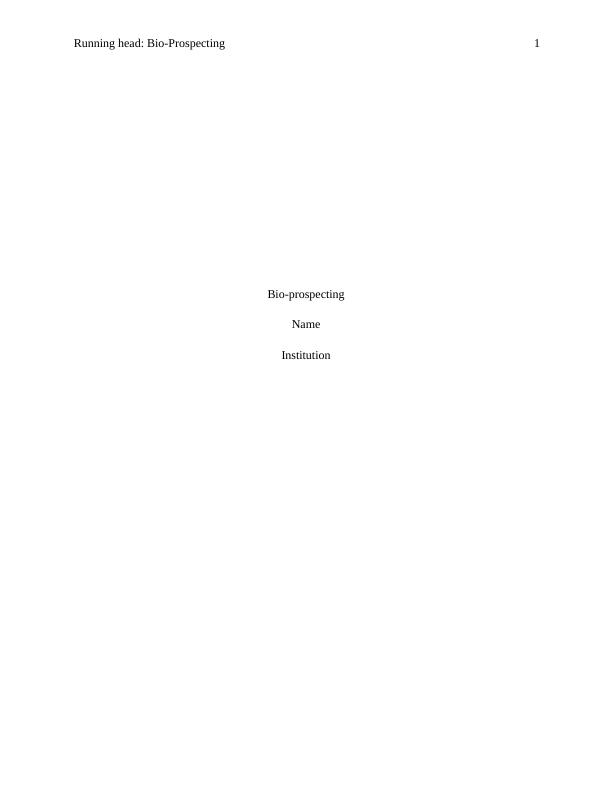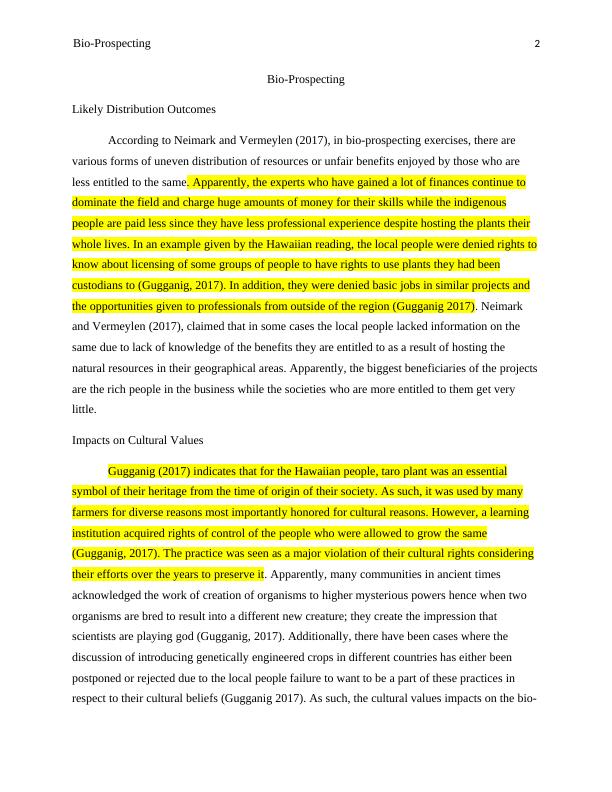Ask a question from expert
Bioprospecting, Traditional Knowledge, and Benefit Sharing
4 Pages1096 Words130 Views
University of Auckland
Added on 2020-04-29
Bioprospecting, Traditional Knowledge, and Benefit Sharing
University of Auckland
Added on 2020-04-29
BookmarkShareRelated Documents
End of preview
Want to access all the pages? Upload your documents or become a member.
Growth and Development of Heritage and Cultural Industry
|11
|2262
|469
Heritage and Cultural Tourism Management
|11
|2293
|336
International Business Management - Solved Assignment
|7
|1515
|78
Workplace Diversity
|4
|682
|261
The coffee industry is expanded
|10
|2661
|18

